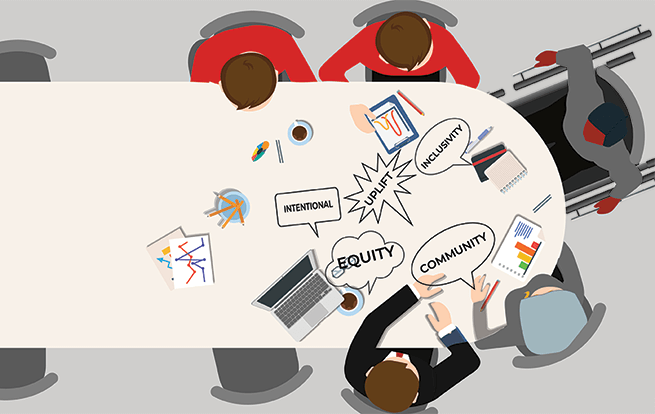Inclusive workplace communications
Treat your employee communications as you treat your customers.
Create inclusive communications to nurture diverse global talent.
81% found that swearing at work is ‘unprofessional’ !
Review brand communication guidelines.
95% of incidents go unreported!
Educate the sender to create inclusive communications in real-time!
25% in-turn take it out on their customers.
Avoid transferring this stress in your communications.
60% people stop paying attention the moment there is incivility in communications.
48% intentionally decrease their work effort when subjected to incivility.
Sensitise the sender in real-time.
27% of employees quit in such places!
Eliminate microaggressions from your communications
Recently, we were asked if Dost can ignore flagging certain swear words in messages, as using swear-words was deemed acceptable in their company. We wanted to dive deeper to understand if this becomes a hinderance to inclusive workplace communications.
This question took me back to an experience I had, when I joined Amazon. As soon as I joined the company, I had to travel to Seattle to attend doc review meetings with the LT team. I was super excited to be there, as I was going to learn all the great processes that made Amazon so successful. However, 35 minutes into the meeting (a typical Amazon meeting, where people first read the document during the meeting, and then discuss their feedback), I stopped paying any attention, and felt totally disconnected because of all the swearing and profanity that was used so casually. I could hardly contribute, even in subjects of my expertise.
Later, when I had my 1:1 with our leader, I brought up the matter and indicated my discomfort at the nature of language used. I was offered some empathy (apparently many newcomers go through this) and was also advised to “ignore that, because that’s how it worked there”.
In the second meeting of the same trip, when I had just finished answering a query , the language used to counter my point went something on the lines of “why the %$^& should we care about this, just because you are &^&%&^*&…..”). I walked out of that meeting and made it clear that I don’t appreciate such language in meetings. Though the leader of that meeting did apologise later, it was with the addendum that I should not be so sensitive.
After this initial unpleasant experience, it always felt like an uphill battle to fit-in, to belong and added stress to calibrate when, what and how to communicate.
I love Amazon. I still believe that Amazon is the greatest company on earth, and the greatest learning ground for leaders, but I just couldn’t fit-in for a very long time.
What are some of the most common reasons you have heard people give to normalise using swear words in workplace communications? I am curious to know if using swear words really worked in a workplace?
Additional Reading:
1) Inclusive Workplace communications in Customer care messaging

